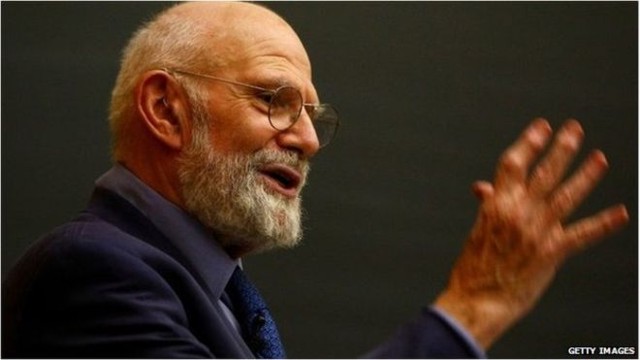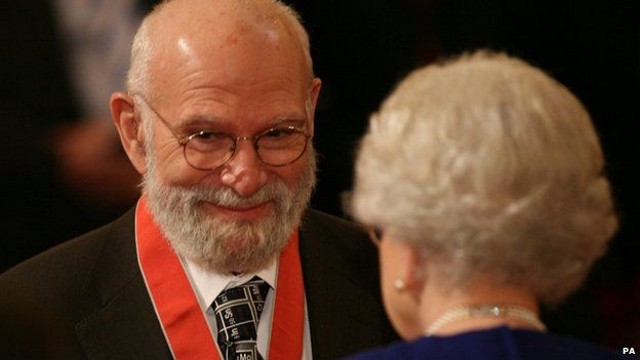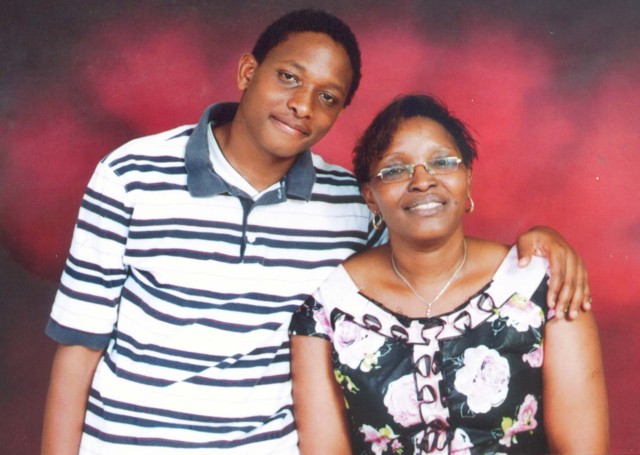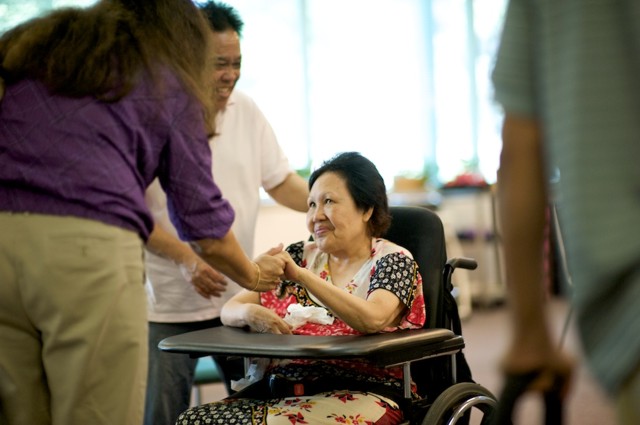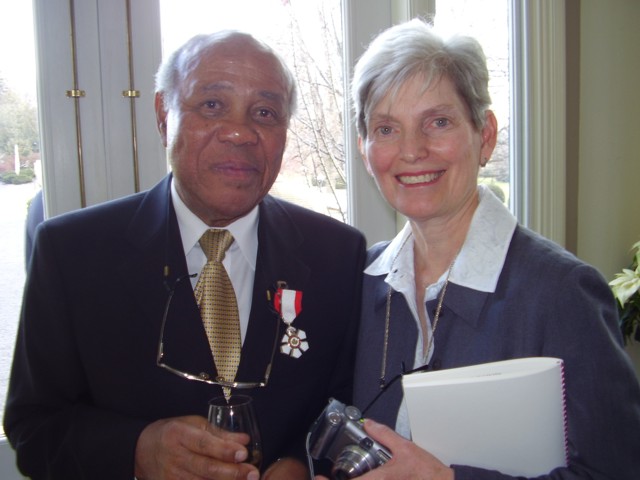Norma Paquin
The Origins Of LPAA
Functional and Pragmatic Approaches
LPAA draws on ideas underlying functional and pragmatic approaches to aphasia nad shares some common values with those who take a broad approach to functional communication treatment by focusing on life participation goals and social relationships. In our view, however, the term “functional” does not do justice to the breadth of this work. In addition, the term is often used narrowly to mean “functional independence in getting a message across”. Although LPAA recognizes the value of this type of impairment-level work, it should form part of a bigger picture where ultimate goal for intervention is re-engagement into everyday society.
Human Rights Issues and Consumers’ Goals
LPAA is a means of addressing unmet needs and rights of individuals with aphasia and those in their environment. Indeed, the Americans with Disabilities Act (ADA), signed into law on July 26, 1990, requires that physical and communication access be provided for individuals with aphasia and other disabilities and allows them legal recourse if they are blocked from accessing employment, programs, and services in the public and private sectors.
In 1992, ASHA provided guidelines for a “communication bill of rights” (National Joint Committee for the Communicative Needs of Persons with Severe Disabilities). Its preface states that “all persons, regardless of the extent or severity of their disabilities, have a basic right to affect, through communication, the conditions of their own existence”. Communication is defined as “a basic need and basic right of all human beings”. ASHA thus views communication as an integral part of life participation.
Emphasis on Competence and Inclusion
LPAA philosophy embraces a view of treatment that emphasizes competence and inclusion in daily life, focusing as much on the consequences of chronic disorders as on the language difficulty caused by the aphasia. Along with other movements in education and health care, LPAA shifts from a focus on deficits and remediation to one of inclusion and life participation. Such international changes in focus point to the need to address the personal experience of disability and promote optimal life inclusion and reintegration into society.
Changes in Reimbursement and Service Delivery
Health care and reimbursement in America have undergone an unprecedented overhaul. Financial exigencies have led to an emphasis on medically essential treatments and others seen as likely to save on future health care costs. Many of the incentives in this model result in the provision of efficient short-term minimal care, rather than the longer term, fuller care supported in the past.
LPAA represents a fundamental shift in how we view service delivery for people confronting aphasia. Since LPAA focuses on broader life-related processes and outcomes form the onset of treatment, service delivery and its reimbursement will require novel means that stand outside most current practices. We are confident that cost-sensitive and therapeutically effective models are possible. Our purpose in this introductory article is to prompt a discussion with providers and consumers as to whether life participation principles and values should play a more central role in the delivery and reimbursement of future service delivery for all those affected by aphasia.
Norma
The Essence Of LPAA
We encourage clinicians and researchers to focus on the real-life goals of people affected by aphasia. For example, in the initial stages following a CVA, a goal may be to establish effective communication with the surrounding nursing staff and physicians. At a later stage, a life goal may be to return to employment or participation in the local community.
Regardless of the stage of management, LPAA emphasizes the attainment of re-engagement in life by strengthening daily participation in activities of choice. Residual skill is thus seen as only one of many requisites. For example, full participation is dependent on motivation and a consistent and dependable support system. A highly supportive environment can lessen the consequences of aphasia on one’s life, whatever the language impairment. A nonsupportive environment, on the other hand, can substantially increase the chance of aphasia affecting daily routines. Someone with mild aphasia in a nonsupportive environment might experience greater daily encumbrances than another with severe aphasia who is highly supported.
In this broadening and refocusing of services, LPAA recommends that clinicians and researchers consider the dual function of communication – transmitting and receiving messages and establishing and maintaining social links. Furthermore, life activities do not need to be in the realm of communication in order to deserve or receive intervention. What is important is to judge whether aphasia ffects the execution of activities of choice and one’s involvement in them.
Norma
LPAA Project Group (in alphabetical order): Roberta Chapey, Judith F. Duchan, Roberta J. Elman, Linda J. Garcia, Aura Kagan, Jon G. Lyon, and Nina Simmons-Mackie
Unprecedented changes are occurring in the way treatment for aphasia is viewed – and reimbursed. These changes, resulting from both internal and external pressures, are influencing how speech-language pathologists carry out their jobs.
Internal influences include a growing interest in treatments that produce meaningful real life outcomes leading to enhanced quality of life. Externally, we are influenced by disability rights activists encouraging adjustments in philosophy and treatment and by consumers frustrated by unmet needs and unfulfilled goals. Most recently, a strong external influence is emanating from the curtailment of funding for our work that has caused a significant reduction in available services to people affected by aphasia.
To accommodate these varied influences on service delivery, it is important to take a proactive stance. We therefore propose a philosophy of service delivery that meets the needs of people affected by aphasia and confronts the pressures from our profession, providers, and funding sources.
Our statement of values has been guided by the ideas and work of speech-language pathologists as well as by individuals in psychology, sociology, and medicine. We intend neither to prescribe exact methods for achieving specific outcomes, nor to provide a quick fix to the challenges facing our profession. Rather, we offer a statement of values and ideas relevant to assessment, intervention, policy making, advocacy, and research that we hope will stimulate discussion related to
restructuring of services and lead to innovative clinical methods for supporting those affected by aphasia.
Defining The Approach
The “Life Participation Approach to Aphasia” (LPAA) is a consumer-driven service-delivery approach that supports individuals with aphasia and others affected by it in achieving their immediate and longer term life goals (note that “approach” refers here to a general philosophy and model of service delivery, rather than to a specific clinical approach). LPAA of clinical practice and research on the consequences of aphasia. It focuses on re-engagement in life, beginning with initial assessment and intervention, and continuing, after hospital discharge, until the consumer no longer elects to have communication support.
LPAA places the life concerns of those affected by aphasia at the center of all decision making It empowers the consumer to select and participate in the recovery process and to collaborate on the design of interventions that aim for a more rapid return to active life. Theses interventions thus have the potential to reduce the consequences of disease and injury that contribute to long-term health costs.
Norma
Intensive Family Training
Aphasia strikes at the heart of communication. It reveals itself in interaction between people. It creates additional challenges in relationships. New barriers exist to participating and enjoying social and other activities.
Aphasia In Motion Intensive Program
What makes our program different?
- We offer a program where it is comfortable to be a couple with aphasia.
- Our program is run by an interdisciplinary team.
- We focus equally on both partners.
AIM – OUR Objectives
- Focus equally on both partners to enhance their lives separately and together
- Keep on moving forward by taking a novel account of the present situation
- Help couples make choices that will enhance purposeful and engaged living
- Enrich the communication process
- Provide education and training to enhance communication and reduce the language and communication barriers
- Identify specific goals for attendees
- Provide 1:1 intervention to support realistic initiation of these goals
AIM – YOUR Outcomes
- Take a break
- One-on-one reflection and contemplation of existing barriers and new possibilities
- Nourish your relationship
- Surround yourself with people who understand aphasia
- Make new connections
- Gain support and education
- Gain tools specific to your needs
- Set goals for greater participation and satisfaction
Norma
Assessment for Living With Aphasia (ALA)
Developed with funding from the Ontario Ministry of Health and Long-Term Care, via the Ontario Stroke Network, this comprehensive assessment package provides tools to better assess the impact of aphasia and identify the factors that affect the quality of life and exacerbate or reduce disability.
Benefits of the Assessment
- Provides quantitative and qualitative data from the perspective of the person living with aphasia
- Uses pictographic approach which allows for participation across a full range of severity
- Based on Living with Aphasia: Framework for Outcome Measurement A-FROM
- In line with World Health Organization’s ICF
- Psychometrically sound: demonstrated reliability and validity (n=101)
- Captures real-life issues for planning and evaluating aphasia treatment and making funding decisions
Norma
Ronnie Branigan
Volunteer, Introductory Program
When Ronnie Branigan retired in 1993, she knew immediately that she wanted to become a part of the Aphasia Institute. “I wanted to give my time to something meaningful and I knew that I could make a difference at the Aphasia Institute.”
Ronnie’s certainty came from her brief interaction with the Aphasia Institute more than 30 years ago when her husband had a stroke in his 40’s. It was then that Ronnie first learned about the Aphasia Institute.
Today, Ronnie is one of the longest-serving members of the volunteer team. She volunteers two days every week, working with the Introductory Program and in our Conversation Program. She says her greatest joy is being able to witness the change that happens through the Introductory Program. “At first, people are shy and withdrawn but by the third or fourth week, you see the group coming together to support each other, and you see confidence building in each member as they learn new skills.”
Providing support to spouses is particularly fulfilling for her. “Often this is the first time that they have the opportunity to meet others in the same situation. They can say whatever they want without fear of judgment and they can hear from others who have had similar experiences. Having lived it first-hand, I can appreciate what they go through.”
Anna Taylor
Volunteer, Introductory Program and Community Aphasia Program
Anna Taylor saw a sign that caught her eye at the grocery store one day: Aphasia Centre. When she got home, she looked up the word “aphasia” in the dictionary never having heard of it before. Two days later, the universe seemed to speak to her again when she came across a recruitment ad in the paper for volunteers at the Aphasia Centre. That was 17 years ago, and Anna is one of Aphasia Institute’s longest serving volunteers.
“I get enormous pleasure from the work I do. I think there are very few things more rewarding than seeing somebody who really has not had what I call a proper conversation,” says Anna.
In the Introductory Program, she primarily works with clients who have very little verbal output, and who arrive apprehensive. “They might be thinking – ‘do they know I can’t speak’ , ‘do they understand how difficult this is for me?’, ” says Anna. “However all of that changes after just a few weeks as confidence grows and members begin to open up and express their opinion, share their joys and their sorrows in a new community that offers hope for the future.”
Norma
British neurologist Oliver Sacks has died at the age of 82, it has been confirmed.
The acclaimed author, whose book Awakenings inspired an Oscar nominated film of the same name, reportedly died of cancer at his home in New York.
In February he wrote about his illness – and being “face to face with dying”.
His publicist Jacqui Graham paid tribute to Dr Sacks, saying he was “unlike anybody I have ever met”, while JK Rowling said he was “inspirational”.
Dr Sacks was best known for his writing, including his book Awakenings – his account of how he brought a group of patients “back to life” after they spent years in “frozen states” after an illness.
The film version, which starred Robert De Niro and Robin Williams, was nominated for three Academy Awards in 1991, including best picture.
Dr Sacks, who was born in London but had lived in New York since 1965, was also the author of several other books about unusual medical conditions, including The Man Who Mistook His Wife For A Hat and The Island Of The Colorblind.
He was awarded several honorary degrees recognising his contribution to science and literature, as well as a CBE in 2008 in the Queen’s Birthday Honours.
Mrs Graham told the BBC Dr Sacks was “unlike anybody else I’ve ever met”.
She said she received an email from his long-time PA saying the neurologist had “a very good death, in the same way that he’d had a very good life”.
Mrs Graham said: “He died surrounded by the things he loved and the people he loved, very peacefully, after an illness he had known about since January this year. He taught us a great deal, right up until the very end.
“He always taught us what it was to be human, and he taught us what it is to die.”
‘Humane, inspirational’
Paying tribute to Dr Sacks, she added: “To say he was unique is for once in the world true.
“He was completely himself – eccentric, but in a marvellous way. He was just completely full of love for life and very impish, and he was childish in the very best sense.”
Other tributes to the author have been paid on Twitter, including by the author JK Rowling, who called him “great, humane and inspirational”.
Biologist Richard Dawkins tweeted: “I met Oliver Sacks only twice, but greatly admired him. Sad to hear of his death.”
Dr Sacks earned a medical degree at Queen’s College, Oxford University, and later began working as a consulting neurologist for Beth Abraham Hospital, in the Bronx, New York, in 1966.
While there he encountered patients who had spent decades in frozen states, unable to initiate movement.
He recognised the patients as survivors of a pandemic of sleepy sickness that had swept the world from 1916 to 1927, and treated them with a then-experimental drug, L-dopa, which enabled them to regain consciousness.
They became the subjects of Awakenings and also later inspired a play by Harold Pinter – A Kind of Alaska.
In The Man Who Mistook His Wife for a Hat and An Anthropologist on Mars he described patients struggling to live with conditions ranging from Tourette’s syndrome to autism, epilepsy, phantom limb syndrome, schizophrenia, and Alzheimer’s.
He also investigated the world of deaf people and sign language in Seeing Voices, and a rare community of colour-blind people in The Island of the Colorblind.
More recently, he served as a professor of neurology and psychiatry at Columbia University Medical Centre from 2007 to 2012.
He was also a professor of neurology at the NYU School of Medicine.
Norma
Sam was an athletic 18-year old living in Kenya when he sustained a serious brain injury during a sporting accident.
Sam was an athletic 18-year old living in Kenya when he sustained a serious brain injury during a sporting accident. The injury resulted in aphasia and with little support in Kenya, Sam’s mother was desperate for help. She was frustrated that people saw her son as “stupid” and was deeply concerned as her son became increasingly depressed and hopeless about his future.
She contacted the Aphasia Institute and because of our international training program, we were able to connect Sam and his mother with a Speech-Language Pathologist in South Africa who had been trained in our methods. Sam is now beginning to see hope on the horizon.
Sam and his mother
Norma
Aurora was a family physician with a busy practice when she suffered a massive stroke in 2006. “This place (Aphasia Institute) has given us hope and a support system”.
Aurora was a family physician with a busy practice when she suffered a massive stroke in 2006. Hoping that the Aphasia Institute might be able to help his wife, her husband Buddy brought an unresponsive Aurora to the Institute’s Introductory Program. Aurora sat slumped in her wheelchair, barely looking at her communication partner throughout the first session but over the course of the program, glimmers of hope began to emerge. Volunteers and staff were able to engage Aurora and prompt her to look up when in conversation – she even started initiating chats.
Through supportive Institute programs, Aurora and Buddy worked together to develop new skills and today Aurora continues to thrive, communicating her thoughts and asserting her desires and wants at home. Although their lives have been forever changed, “this place (Aphasia Institute) has given us hope and a support system,” says Buddy.
Aurora and Buddy
Norma
In 2006, Dr. Donald Meeks was awarded one of the country’s highest distinctions – the Order of Canada – for his outstanding contribution to the Addiction field in Canada. No one could have predicted that just two short years after this high point, Don would experience two strokes that would forever change his life.
Dr. Donald Meeks dedicated his life to helping people with addictions, building a distinguished reputation as a Professor at the University of Toronto and the Associate Director of the Clinical Institute at the Centre for Mental Health and Addiction (CAMH). His work took him around the world as a special consultant to the United Nations and the World Health Organization.
In 2006, he was awarded one of the country’s highest distinctions – the Order of Canada – for his outstanding contribution to the Addiction field in Canada. No one could have predicted that just two short years after this high point, Don would experience two strokes that would forever change his life.
After the second stroke, Don was left with lingering weakness on his right side, permanent damage to his memory, and aphasia.
For an academic man who had built his career on his ability to read, write and express himself verbally, aphasia was an unexpected blow. “I suffered the most from a lack of self confidence in pubic situations – I feared that I would be inarticulate or lose my train of thought,” says Don. “Being referred to the Aphasia Institute was a ‘stroke of luck’!”
Don and his wife Sherril entered the Aphaisa Institute’s Introductory Program with great hope… and the program delivered. Don’s confidence began to build and Sherril connected with fellow caregivers and built a network of support for herself. Together, they learned about aphasia and some of the supportive communication techniques.
Don quickly graduated to the Aphasia Institute’s Toastmasters Club, where he continues today. Sherril remains connected to the Family group. Both are looking ahead with optimism although they appreciate that the journey has been very different for each of them.
Looking back, there’s an irony to having spent decades helping others only to find themselves, as Don refers to it, ‘on the other side of the gurney’.
Both know that the Aphasia Institute will be a key part of their lives for some time to come. “This is a best practice demonstration of everything I taught for years,” says Don. “The community at AI is astounding – we feel so welcomed and very much a part of this wonderful, wonderful community.”
Dr. Donald Meeks
Norma
